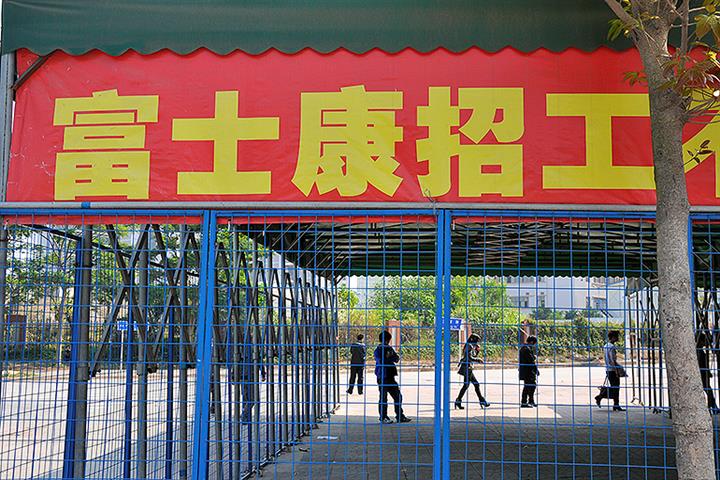 Foxconn’s New Graduate Hiring Jumps 50% in China This Year as iPhone 14 Launch Nears
Foxconn’s New Graduate Hiring Jumps 50% in China This Year as iPhone 14 Launch Nears(Yicai Global) July 19 -- Hon Hai Precision Industry, the world's biggest original equipment manufacturer of Apple’s handsets, is accelerating hiring in China ahead of the launch of the iPhone 14.
The number of fresh university graduates hired by Hon Hai, also known as Foxconn, has grown to almost 3,750 this year, up by nearly 50 percent from a year ago, the Taiwan-based contract manufacturer said on its WeChat account yesterday.
Trial production of the iPhone 14 series has already begun, Cinda International Holdings wrote in its latest research report. Mass production is planned to kick off next month, it added. Sales of the new handset series are expected to exceed those of the previous iPhone model, launched a year ago, in the early stages.
Over 1,620 graduates, or more than 40 percent of the total, will be working in Shenzhen, where Foxconn's largest factory located. They will be enriching the company's departments of industrial Internet, research and development, management, technology, operations, as well as administration.
The manufacturer is offering generous salaries in China. The new hires can earn as much as CNY15,000 (USD2,223) during their probation, a Foxconn insider said to Yicai Global.
The peak of recruitment is taking place early this year and the incentives are attractive. Foxconn's integrated Digital Product Business Group said earlier that its Zhengzhou plant will provide every new employee with a signing bonus worth up to CNY10,000 (USD1,483). The business division that is in charge of assembling iPhones has a factory in Zhengzhou but also in Shenzhen, and Chengdu, public data show.
Apple has been largely protected from the global slowdown in phone sales amid the Covid-19 pandemic. The California-headquartered company boosted its smartphone market share to 17 percent in the second quarter, only second to Samsung’s 21 percent, up from its earlier share of 14 percent, logged a year ago, according to data from market research institution Canalys. Meanwhile, global smartphone shipments fell by 9 percent.
Editor: Emmi Laine, Xiao Yi